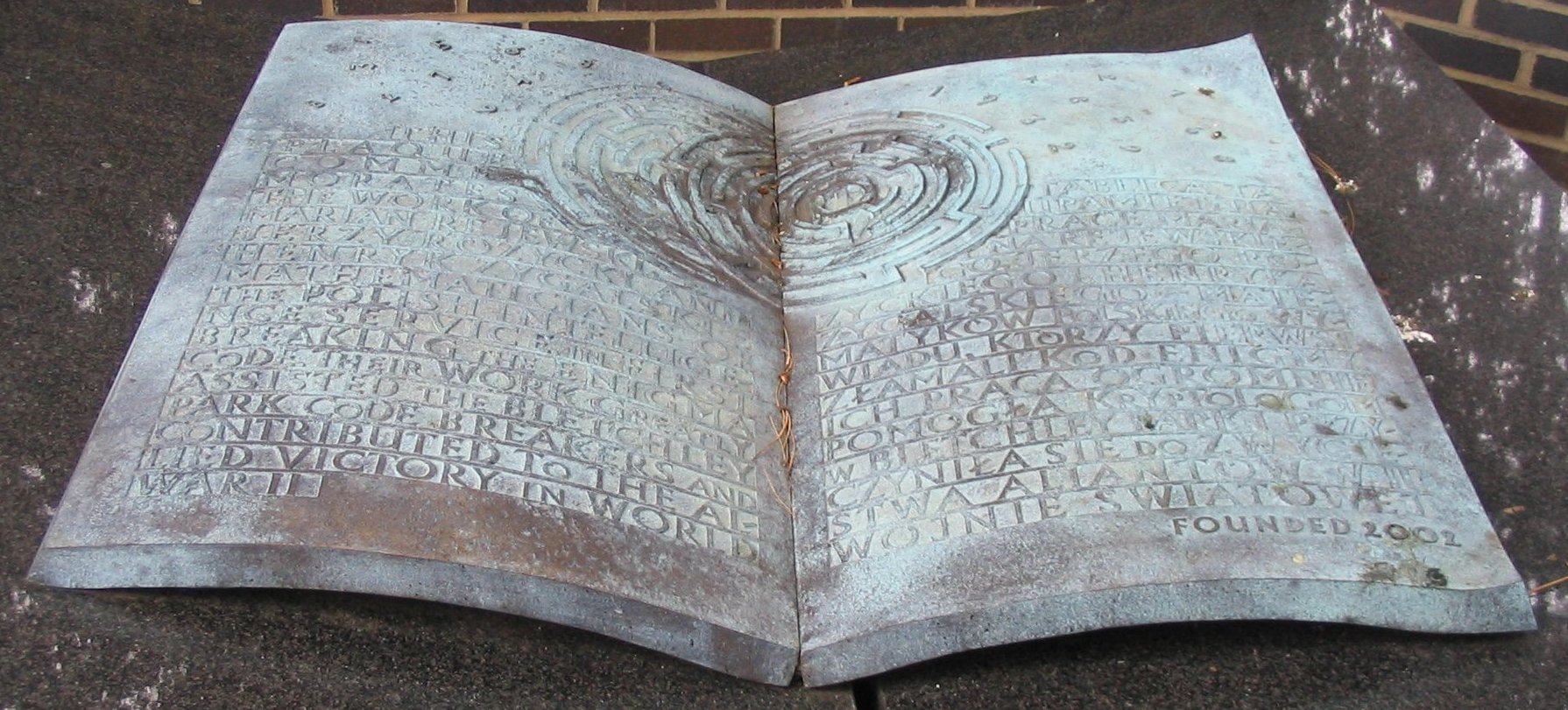We live in the age of an information economy. Trading in information is now seen as a way to make a living. Information clearly has economic benefit in the corporate world, so one can get a "jump" on the competition. In a similar way, governments have long been involved in seeking to know what an adversary is doing, or planning. Over recent years, there have been a spate of movies about the codebreaking efforts of WWII.
Initially, the German Enigma code was broken by Polish mathematicians, Marian Rejewski, Jerzy Różycki and Henryk Zygalski, working for Polish military intelligence. Just ahead of the invasion of Poland, bomba (mechanical codebreaking machine) were provided to the French and the British. This was the basis of the work during the war at Bletchley Park. Unfortunately, although the Poles had been first to break the code, they were deemed to be to high a security risk to work at Bletchley Park.
Later, the same concept was applied and the British then built bombes for use at Bletchley Park. They were different in design than the Polish bomba, but, used the mathematical concepts developed by the Poles. The Polish contribution has been more recently acknowledged, as demonstrated by the plaque below.

CC BY-SA 2.0, https://commons.wikimedia.org/w/index.php?curid=460477
Discovering the secrets of others, through codebreaking or other means, has long been a major function of intelligence services. Another approach has been the planting of false information. This has been used, not only to influence governments, but also to influence electorates.
In the 1980s, there was a Soviet disinformation campaign aimed at blaming the US government for developing the HIV/AIDS virus, and suggesting that it was to be a genocide of Black people (https://en.wikipedia.org/wiki/Operation_INFEKTION). It had some effect, leading many to question what the origin of the virus was and led to further distrust of the American health care system.
More recently, there have been efforts at influencing public opinion regarding international events, such as the shooting down of a Malaysian jetliner over Ukraine. There have also been efforts at influencing election outcomes, presumably to get a result more favorable to the country which is interfering, whether in a referendum, such as Brexit, or election of political figures. (http://www.nytimes.com/2016/08/29/world/europe/russia-sweden-disinformation.html) This involves not only releasing factual information, but, making lies appear to be the truth.
As someone who feels it is my duty to be an informed voter, it is increasingly difficult. There is no easy way to distinguish what is true and what is not. And, for many voters, there seems to be a trust in beliefs rather than facts. But, is this really unreasonable, when one can't trust "facts." So, it just seems easier to "trust" someone who seems "trustworthy" rather than attempt the seemingly Herculean task or sorting out what is true and what is not. To me, it seems most reasonable just to ask, "Who benefits?" and, "Do they have friends who would be able to construct a plausible reality?" To me, this is the greater concern, as authoritarian government is frightening to me, whether from the left or the right.
Initially, the German Enigma code was broken by Polish mathematicians, Marian Rejewski, Jerzy Różycki and Henryk Zygalski, working for Polish military intelligence. Just ahead of the invasion of Poland, bomba (mechanical codebreaking machine) were provided to the French and the British. This was the basis of the work during the war at Bletchley Park. Unfortunately, although the Poles had been first to break the code, they were deemed to be to high a security risk to work at Bletchley Park.
Later, the same concept was applied and the British then built bombes for use at Bletchley Park. They were different in design than the Polish bomba, but, used the mathematical concepts developed by the Poles. The Polish contribution has been more recently acknowledged, as demonstrated by the plaque below.

CC BY-SA 2.0, https://commons.wikimedia.org/w/index.php?curid=460477
Discovering the secrets of others, through codebreaking or other means, has long been a major function of intelligence services. Another approach has been the planting of false information. This has been used, not only to influence governments, but also to influence electorates.
In the 1980s, there was a Soviet disinformation campaign aimed at blaming the US government for developing the HIV/AIDS virus, and suggesting that it was to be a genocide of Black people (https://en.wikipedia.org/wiki/Operation_INFEKTION). It had some effect, leading many to question what the origin of the virus was and led to further distrust of the American health care system.
More recently, there have been efforts at influencing public opinion regarding international events, such as the shooting down of a Malaysian jetliner over Ukraine. There have also been efforts at influencing election outcomes, presumably to get a result more favorable to the country which is interfering, whether in a referendum, such as Brexit, or election of political figures. (http://www.nytimes.com/2016/08/29/world/europe/russia-sweden-disinformation.html) This involves not only releasing factual information, but, making lies appear to be the truth.
As someone who feels it is my duty to be an informed voter, it is increasingly difficult. There is no easy way to distinguish what is true and what is not. And, for many voters, there seems to be a trust in beliefs rather than facts. But, is this really unreasonable, when one can't trust "facts." So, it just seems easier to "trust" someone who seems "trustworthy" rather than attempt the seemingly Herculean task or sorting out what is true and what is not. To me, it seems most reasonable just to ask, "Who benefits?" and, "Do they have friends who would be able to construct a plausible reality?" To me, this is the greater concern, as authoritarian government is frightening to me, whether from the left or the right.